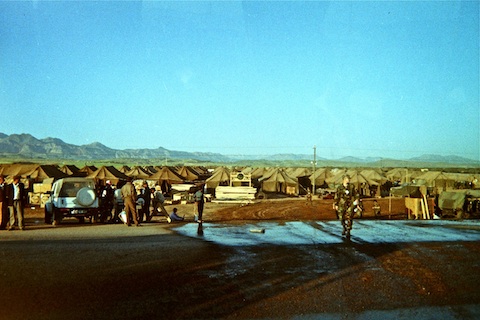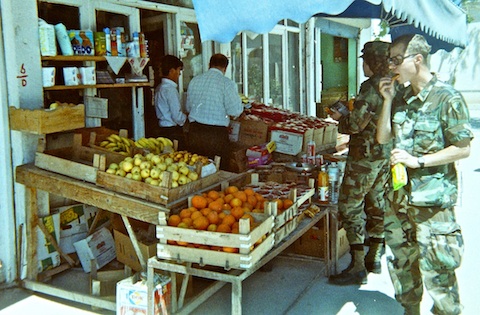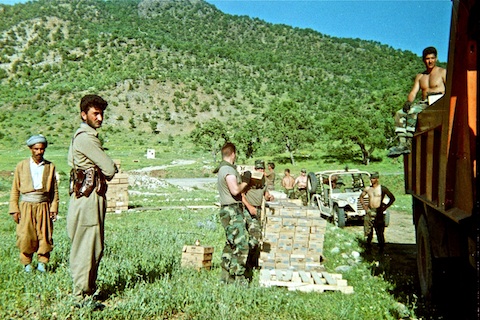The Kurdish Detour
Incirlik, Turkey—The 432nd’s mission was to create rescue operations as part of a task force named Operation Provide Comfort which would provide medical and food distribution services in mountain-based couection areas and, at the same time, set up two displaced civilian camps outside of Zakho, Iraq. Eventually, the operations were to be handed over to non-government organizations under the authority of the United Nations.
A large variety of US military units and non-government organizations (NGOs) would support the 432nd’s mission. Subordinate to the 354nd Civil Affairs Brigade, the 432nd coordinated with the 18th Engineer Brigade; the 18th Military Police Brigade; the 431st, 418th and the 96th Civil Affairs units. Additional support was offered by US Seabee’s, aviation, psyops and Marines, as well as Italian, Dutch, British and French military engineers, medical and airborne personnel.

Once the mission of creating a relief infrastructure in northern Iraq was achieved, the control and operations of the effort would be handed over to a vast array of NGOs under the UN. These included: the UN’s World Health Organization, the High Commission on Refugees, Northwest Medical Doctors, CARE, Red Cross/Red Crescent, Operation Mercy, Overseas Development Agency, AMURT, Doctors Without Borders, Sisters of Mercy, Global Partners Inc., Middle East Enterprises, Action Nord-Sud, Medicins du Monde, Christian Outreach, Intemational Rescue Committee and UNICEF. Several nations also made contributions of food and tents. All these assets converged on the shoulders of CPT Carl Fisher and CPT John Elliott who served as the mayors of Camps 1 and 2 respectively. They had the burden of coordinating those assets for the basic purpose of sustaining the lives and well being of the Kurds. Before that could happen however, the 432nd had to get out of Incirlik.

McMurry’s Notes
- Bringing supplies to the Kurds in the mountains was often easier said than done. The media was full of reports of Kurds getting crushed by pallets of supplies that were parachuted out of airplanes. By the time I got to the mountains, they had taken to flying them in by helicopter. But the flight crews were so scared of getting shot at, that they would just kick the supplies out the door. Alot of the containers broke, ruining the food. The Kurds weren’t allowed to bring weapons into the camps near Zakho, but in the mountains they were armed to the teeth. Some of them were even communist guerillas, but we never had problems with any of them. Which made the flight crews’ behavior wierd.
After we would gather up the surviving supplies, we had to transport what was still tons of material across the LZ to our base camp. Since the primary mode of Kurdish transportation was a dump truck, we would grab the next band to come by, offering them a cut of the supplies in return for borrowing their truck. It saved a lot of time and effort.

Moving supplies with Kurdish guerillas. Our LZ was on the other side of the road, at the base of the hill.
| Page 23 | Page 24 | Page 25 |
